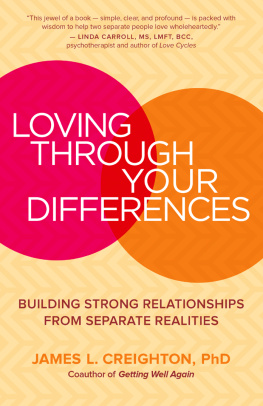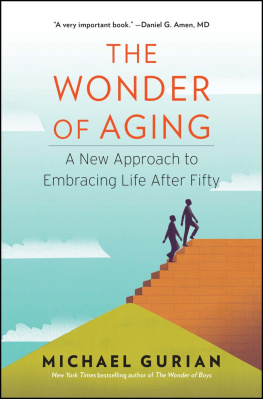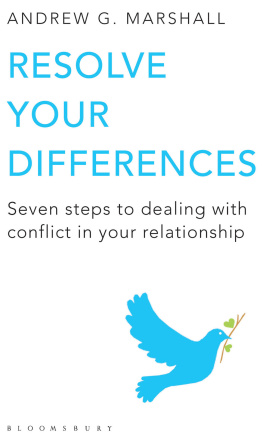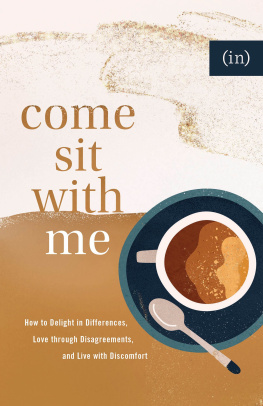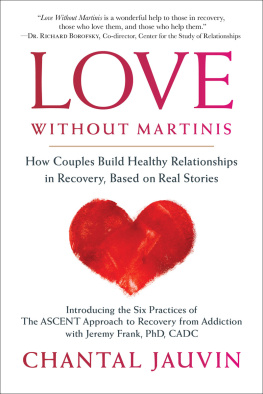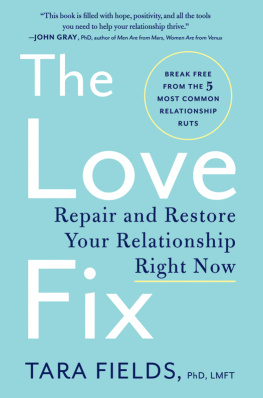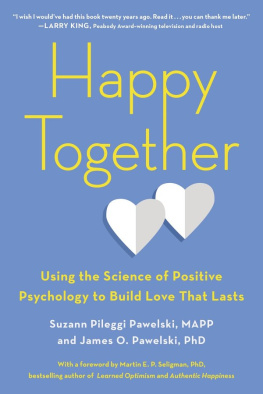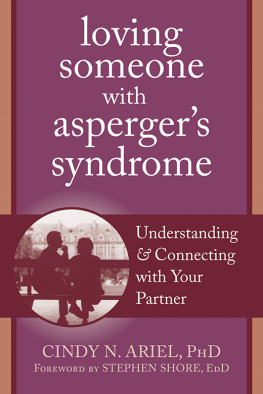
Also by James L. Creighton
CyberMeeting: How to Link People and Technology
in Your Organization (with James W. R. Adams)
Dont Go Away Mad: How to Make Peace with Your Partner
Getting Well Again
(with O. Carl Simonton and Stephanie Matthews-Simonton)
How Loving Couples Fight: 12 Essential Tools
for Working Through the Hurt
Involving Citizens in Community Decision Making
The Public Involvement Handbook
The Public Participation Handbook


| New World Library 14 Pamaron Way Novato, California 94949 |
Copyright 2019 by James L. Creighton, PhD
All rights reserved. This book may not be reproduced in whole or in part, stored in a retrieval system, or transmitted in any form or by any means electronic, mechanical, or other without written permission from the publisher, except by a reviewer, who may quote brief passages in a review.
The material in this book is intended for education. It is not meant to take the place of diagnosis and treatment by a qualified medical practitioner or therapist. No expressed or implied guarantee of the effects of the use of the recommendations can be given or liability taken.
Text design by Tona Pearce Myers
Library of Congress Cataloging-in-Publication data is available.
First printing, February 2019
ISBN 978-1-60868-566-0
Ebook ISBN 978-1-60868-567-7
Printed in Canada on 100% postconsumer-waste recycled paper

| New World Library is proud to be a Gold Certified Environmentally Responsible Publisher. Publisher certification awarded by Green Press Initiative. www.greenpressinitiative.org |
10 9 8 7 6 5 4 3 2 1
To Florence Creighton,
a wise therapist of many years experience,
who provided valuable help at every step of this book
Contents
C ouples fight. Sometimes a little, sometimes a lot. Sometimes these fights provide comic relief. At other times they threaten the very survival of the relationship.
This is a book for people who fear conflicts with loved ones, or who are tired of hurting. The ideas and skills in this book have been field-tested: my wife and I just celebrated our fifty-second wedding anniversary. And our relationship hasnt always been easy. We certainly wouldnt have made it without the ideas and practices described in this book. Weve learned by doing.
It has been my privilege to teach problem-solving and communication skills to thousands of people worldwide. Many of the people Ive worked with have known not only the pain of fights but also additional challenges such as cancer, AIDS, domestic violence, probation, and even prison time.
One of the most important things Ive learned is that each of us has an emotional reality of our own. No one else experiences events in the same way that you do. No one else has the same experiences of gender, childhood, religion, culture, and community that have shaped you. No one else has exactly the same beliefs, values, or philosophy of life.
This individuality means that two people may have entirely different emotional reactions to the same external event. If my wife and I go to a movie, I may find it exciting, while she is bored to tears. Whether or not the movie is any good is debatable thats not fact. But it is a fact that I was excited. It is a fact that she felt bored.
Weve all observed how people may react differently to the same event. Although it appears commonplace, this observation holds the key to a fundamentally different understanding of our feelings.
Most of us think of feelings as caused by events outside ourselves. We think we feel the way we do because of what other people do, or life events outside our control. We get in fights with our partner because of the things they say or do. If they would just be different, wed feel good. If they would just stop doing the thing thats bothering us, wed be okay. Or if theyd just start doing this other thing, wed be okay. But in the meantime, there are moments when we are just miserable and we think its because of other people. When we think in this way, we are, in effect, giving away control over our feelings. We believe that in order for us to feel happy, other people must change what they are doing.
Our feelings are always filtered through and interpreted by our attitudes, beliefs, thoughts, expectations, and past history. This process creates our emotional reality.
If someone I know walks by me and pays no attention to me, I can interpret this behavior in several different ways:
I can think he doesnt like me, or is upset with me, and is snubbing me intentionally.
I can think that he has so much going on in his mind that paying attention to me is of secondary importance.
I can think that he just didnt notice me.
Depending on my interpretation, I may feel hurt, angry, rejected, ignored, or just plain puzzled. My feeling results as much from my interpretation as from the other persons behavior.
We participate in creating our feelings by assigning meaning that we give to outside events. Im not suggesting that we can simply sit down and decide what were going to feel although sometimes when we dont have all the facts or the situation is ambiguous, thats exactly what we do. Most of the time, our emotional reactions are instantaneous: someone says something, and we instantly feel upset, hurt, or rejected. We can feel those feelings in our body. But they are not caused directly by the event: they are the result of the interaction between the event and our personal emotional reality. It just happens so fast were not aware of it.
How can we tell that this interaction is happening? We can see that other people feel differently about the same event. We may feel devastated by an event that other people think is no big deal. It is a fact that we feel devastated. It is a fact that these other people seem not to be bothered at all.
If we have a little emotional distance, it can be amusing when someone tells us that we ought to feel hurt, or rejected, or resentful about something that has happened, but we dont. They are really saying that because they would feel hurt (or rejected, or resentful) if that event happened to them, we should feel that way too.
Because their emotional reality is different, other people including people we love, like our partners have different emotional reactions to things than we do. We run into trouble when we expect or even sometimes demand that other people have the same perceptions that we do, and we are disappointed in them if they dont.
The problem comes when we blame these differences on defects in their personality, moral sense, or compassion. In fact, in close relationships we often express this view by saying, If you loved me, you would feel differently. We are essentially saying, My emotional reality is the correct one. If you loved me, you would share my emotional reality.
The realization that the person we love doesnt share our emotional reality can be a source of great anxiety and alienation. We may ask ourselves, What is this person doing in my life? We live in totally different worlds. We interpret everything differently. We dont like the same things. It is hard to imagine how we ever got together. Is it really possible to live with a person so unlike me, whose sense of reality doesnt even resemble my own? We seem faced with a choice between being close to another person and standing alone with our own experience. Do we have to give up our own sense of the world, our own separate experience of reality, to be in relationship with another person?
Next page
